Wissenschaftliche Zentren
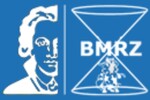
BMRZ: Biomolekulares Magnetresonanz Zentrum
The BMRZ is a research infrastructure facility for high-end nuclear and electron magnetic resonance spectroscopy . Our research is dedicated to the elucidation of structure and functional mechanism of biomolecules ranging from RNA and RNA-protein complexes via large soluble protein complexes to membrane proteins
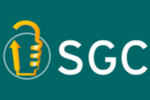
SGC - Structural Genomics Consortium
The Structural Genomics Consortium at the Goethe University Frankfurt (SGC Frankfurt) is focused on the development of selective inhibitors (chemical probes), which help us to better understand the biological role of key signaling molecules and may serve as a starting point to target these proteins in different diseases. The SGC Frankfurt is committed to sharing its research in the spirit of Open Science.
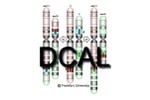
DCAL: Diagnostic Center of Acute Leukemia
The Diagnostic Center of Acute Leukemia (DCAL) investigates chromosomal translocations of the human MLL gene, associated with high-risk acute leukemia (AML and ALL) of pediatric and adult leukemia patients. By applying a novel "long distance inverse PCR method" (LDI-PCR), we are able to identify MLL gene rearrangements at the genomic DNA level of pre-screened patients (Meyer et al., PNAS 2005).
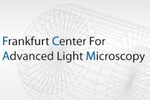
Frankfurt Center for Advanced Light Microscopy (FCAM)
The formation of the Center for Membrane Proteomics in 2002 was simultaneously the beginning of a professional organization of elementary techniques in advanced light microscopy with the aim to provide this in a central facility available for all scientists of the Goethe University. Conducted by former vice president of the Goethe University and director of the life imaging lab Jürgen Bereiter-Hahn, who is also the initiator of the new campus Riedberg, gathering all natural sciences at one place, the CMP Light Microscopy Center was established. Now a central administration managed the operation of the common facility. User now got trained on the instruments and into data analyses, before they started to use them, which was good the efficiency of the time spent on them but also for the lifetime and availability of the instruments. The administration took care for maintenance and repair as well as for the costs and a fair regulation of the access. The first confocal microscopes were allocated by Anna Starzinski-Powitz and Robert Tampé. Rooms were provided by the center for temporary projects using TIRF, FLIM and MELC technology. An infrastructure with labs, cryotom, refrigerators completed the facility.
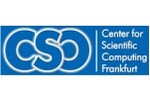
CSC: Center for Scientific Computing
The Center for Scientific Computing (CSC) of the Goethe University Frankfurt currently operates three Linux-based computer clusters within the framework of the HHLR-GU (Hessisches Hochleistungsrechenzentrum der Goethe-Universität) to support numerically intensive studies in a variety of research fields, ranging from neuroscience to high-energy physics.
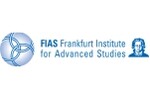
FIAS: Frankfurt Institute for Advanced Studies
Das Frankfurt Institute for Advanced Studies (FIAS) führt hochqualifizierte Forscher aus den Bereichen Physik, Mathematik, Hirnforschung, Life Science und Computerwissenschaften zusammen. Als Plattform für die Vernetzung der Wissenschaften legt es Grundlagen für entscheidende Fortschritte der Forschung durch Zusammenarbeit, durch Gedankenaustausch und durch Überwinden von strukturellen Grenzen zwischen den Disziplinen. Mehr als 200 Wissenschaftler aus 25 Ländern forschen am FIAS.
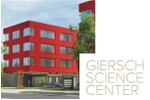
GSC: Giersch Science Center
Das Giersch Science Center auf dem Campus Riedberg in Frankfurt am Main öffnet 2014 seine Türen als Wissenschaftszentrum für mehr als 250 Forscherinnen und Forscher.
Internationale Wissenschaftler verbinden ihr Wissen in den Disziplinen Biologie, Chemie, Physik, Medizin, Wirtschaft und Energie, Hirnforschung und Informatik, um neue theoretische und interdisziplinäre Erkenntnisse im Bereich der Grundlagenforschung zu erhalten.
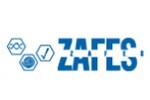
ZAFES: Zentrum für Arzneimittelforschung, Entwicklung und –Sicherheit
Das Zentrum für Arzneimittelforschung, -Entwicklung und –Sicherheit (ZAFES) wurde 2002 an der Johann-Wolfgang-Goethe Universität Frankfurt gegründet. Seine Aufgabe ist es - als „Center of Excellence“ und Kern eines Pharma Denker-Clusters - das beste Wissen aus den drei Welten „Universität“, „Pharmazeutische Industrie“ und „Biotechnologie“ zielgerichtet zusammenzuführen, um schneller zu innovativen Arzneimitteln zu gelangen.
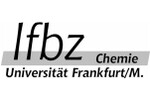
lfbz: Lehrerfortbildungszentrum
Das Lehrerfortbildungszentrum lfbz Chemie der Goethe-Universität ist ein Teil des Instituts für Didaktik der Chemie und ergänzt dessen Auftrag in der Lehrerbildung durch sein Fortbildungskonzept. Dieses richtet sich an Chemielehrerinnen und Chemielehrer der Sekundartstufen I und II, Grundschule und Förderschule.
Ermöglicht wird die Arbeit des Fortbildungszentrums durch eine Zusammenarbeit von Goethe-Universtität, der Gesellschaft Deutscher Chemiker (GDCh) und dem Land Hessen. Eine Übersicht über alle derzeit von der GDCh geförderten Lehrerfortbildungszentren in Deutschland finden Sie unter www.gdch.chemielehrerfortbildung.de.




